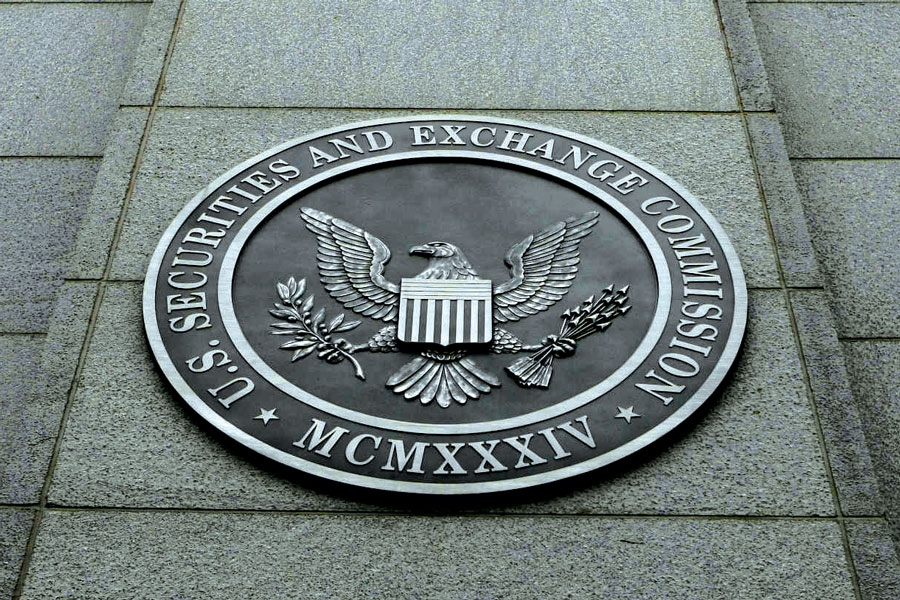SEC’s New Crypto Task Force Signals Shift in Regulatory Approach
05.02.2025 13:00 1 min. read Alexander Zdravkov
The SEC has launched a dedicated crypto task force, signaling a shift in regulatory approach under new leadership.
Spearheaded by Commissioner Hester Peirce, the initiative aims to clarify which digital assets qualify as securities, streamline registration processes, and provide clearer guidelines for approving or rejecting exchange-traded products.
Peirce emphasized that one of the key objectives is determining which tokens can be classified as non-securities. She also suggested that the SEC might explore temporary relief measures for certain token issuers, provided they disclose key information, maintain transparency, and acknowledge the agency’s jurisdiction in fraud-related cases.
Collaboration will be central to the task force’s efforts, with Peirce calling on industry participants—whether builders, investors, or critics—to contribute to shaping regulatory policies. The SEC also plans to work alongside state regulators and international counterparts to refine its stance on crypto.
This initiative follows the appointment of Acting SEC Chair Mark Uyeda, who took over after Gary Gensler’s departure. Gensler had pushed for strict oversight, arguing that most cryptocurrencies fall under securities laws. His approach sparked resistance from the crypto industry, which argued that existing regulations were outdated and impractical for digital assets.
The task force has also brought in former Coin Center Policy Director Landon Zinda as a senior advisor, reflecting an effort to incorporate diverse perspectives into its policy-making process.
-
1
U.S. Lawmakers Target El Salvador With Crypto Sanctions Plan
10.07.2025 15:00 2 min. read -
2
Crypto Week Begins: U.S. Congress Advances Key Bills as Trump Pushes for Regulatory Clarity
15.07.2025 7:00 2 min. read -
3
Crypto Tax Policy in Spotlight as House Plans July 16 Hearing
10.07.2025 9:00 2 min. read -
4
Thailand Launches National Crypto Sandbox
17.07.2025 9:03 2 min. read -
5
House Clears Path for Landmark Crypto Bills: Vote Set for Thursday
17.07.2025 9:15 2 min. read
South Korea Urges Asset Managers to Limit Exposure to Crypto Stock Like Coinbase,MicroStrategy
South Korea’s top financial watchdog has issued informal guidance urging local asset managers to scale back their investments in crypto-related stocks, according to a Korean Herald report.
SEC Reverses Bitwise ETF Approval Just Hours After Greenlight
In a surprising move on Tuesday, the U.S. Securities and Exchange Commission (SEC) initially approved Bitwise’s proposal to convert its cryptocurrency index fund into a full-fledged exchange-traded fund (ETF)—only to halt the decision just hours later.
Senate Republicans Unveil Crypto Market Bill to Expand CLARITY Act
Senators Tim Scott, Cynthia Lummis, Bill Hagerty, and Bernie Moreno (R-OH) have released a discussion draft of a new digital asset market structure bill—framed as the Senate counterpart to the CLARITY Act.
Banking Trade Groups Urge OCC to Halt Digital Trust Bank Approvals
Five major banking associations are urging the Office of the Comptroller of the Currency (OCC) to delay approval of new national trust bank charters for digital asset firms, including Ripple, Fidelity Digital Assets, National Digital TR CO, and First National Digital Currency Bank.
-
1
U.S. Lawmakers Target El Salvador With Crypto Sanctions Plan
10.07.2025 15:00 2 min. read -
2
Crypto Week Begins: U.S. Congress Advances Key Bills as Trump Pushes for Regulatory Clarity
15.07.2025 7:00 2 min. read -
3
Crypto Tax Policy in Spotlight as House Plans July 16 Hearing
10.07.2025 9:00 2 min. read -
4
Thailand Launches National Crypto Sandbox
17.07.2025 9:03 2 min. read -
5
House Clears Path for Landmark Crypto Bills: Vote Set for Thursday
17.07.2025 9:15 2 min. read


